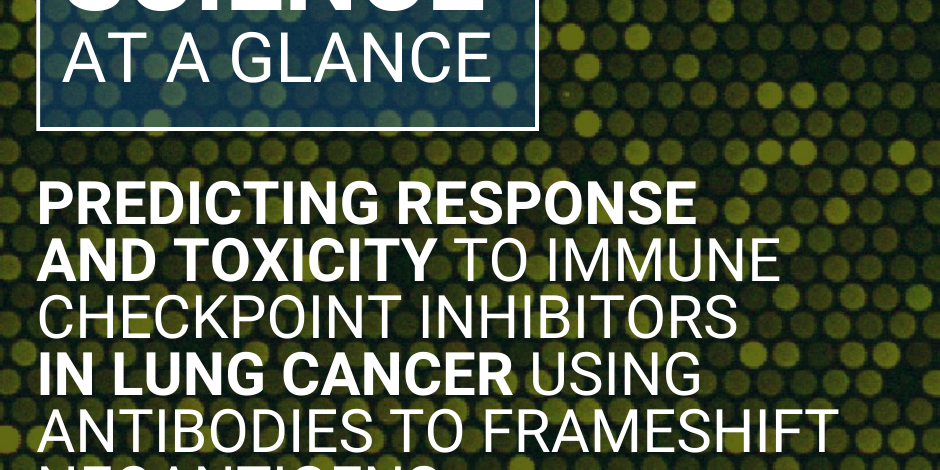SCIENCE AT A GLANCE
Predicting response and toxicity to immune checkpoint inhibitors in lung cancer using antibodies to frameshift neoantigens
Scientists at Calviri and MD Anderson Cancer Center, have studied a distinct source of cancer-specific biomarkers: antibodies to neoantigens generated by translation of RNA-level errors. In all cells, errors in RNA transcription and processing occur more than 100-fold more frequently than errors in DNA replication. Error rates in tumors are even further escalated relative to healthy cells. Consequently, many of these RNA errors are translated into frameshifted peptide variants. As these are neoantigens, they are highly likely to elicit T and B cell responses. The diversity of antibodies against these peptide variants in cancer patients might be sufficiently informative as predictive biomarkers to classify them by future Immune checkpoint inhibitors outcomes.
In this article scientists present the feasibility of a simple, accurate, serological test that uses a small amount of blood to predict ICI (Immune checkpoint inhibitors outcomes). It works by measuring a new class of biomarkers (anti- frameshifted peptide variants antibodies) on high density peptide microarray, that are sufficiently comprehensive to inform both future ICI clinical responses and toxicities. These biomarkers represent an orthogonal determination of patient status relative to others explored for predicting response, and a new one for predicting immune-related adverse event.
Original publication: https://doi.org/10.1186/s12967-023-04172-w
#Neoantigen #Biomarker #Immunecheckpointinhibitor #Microarray #Peptidemicroarrays
